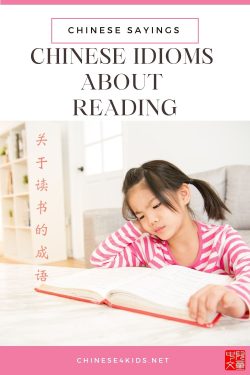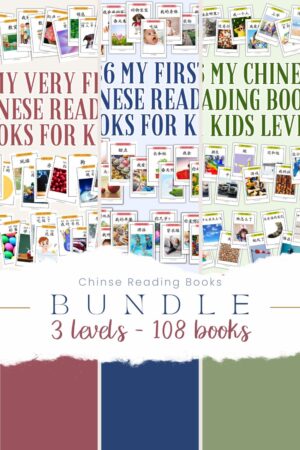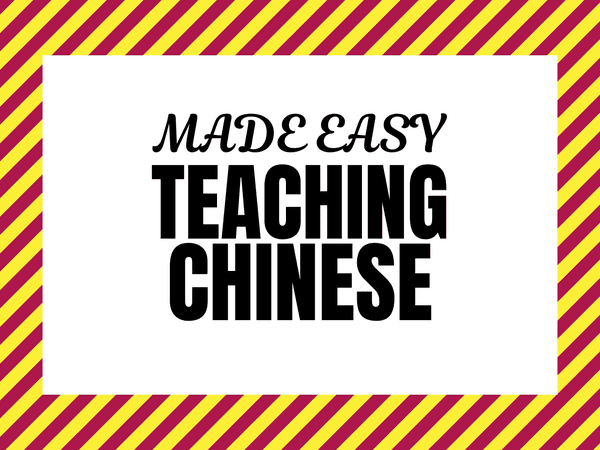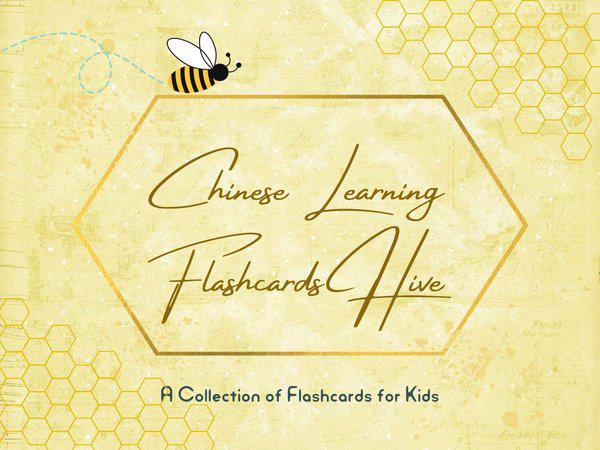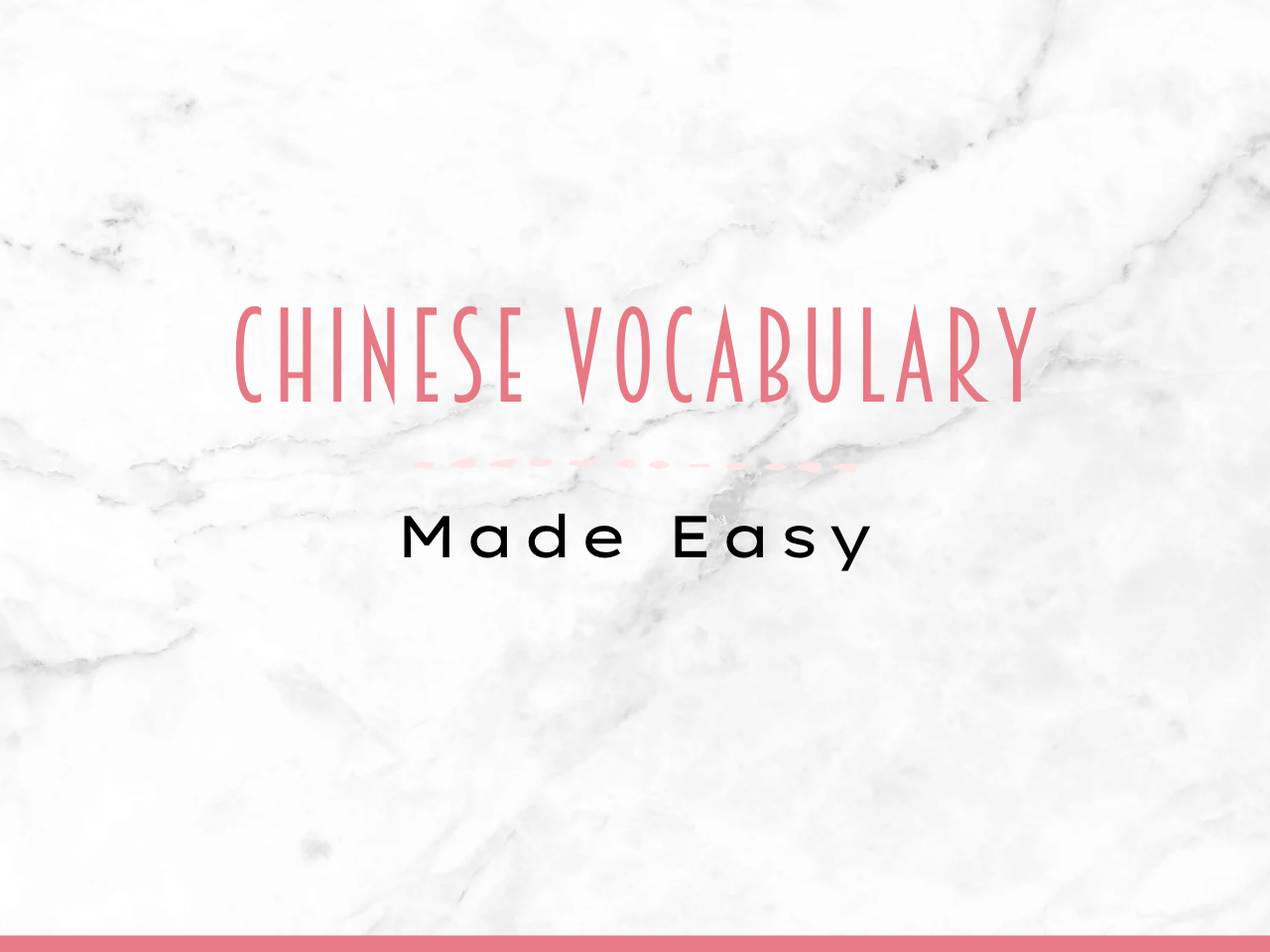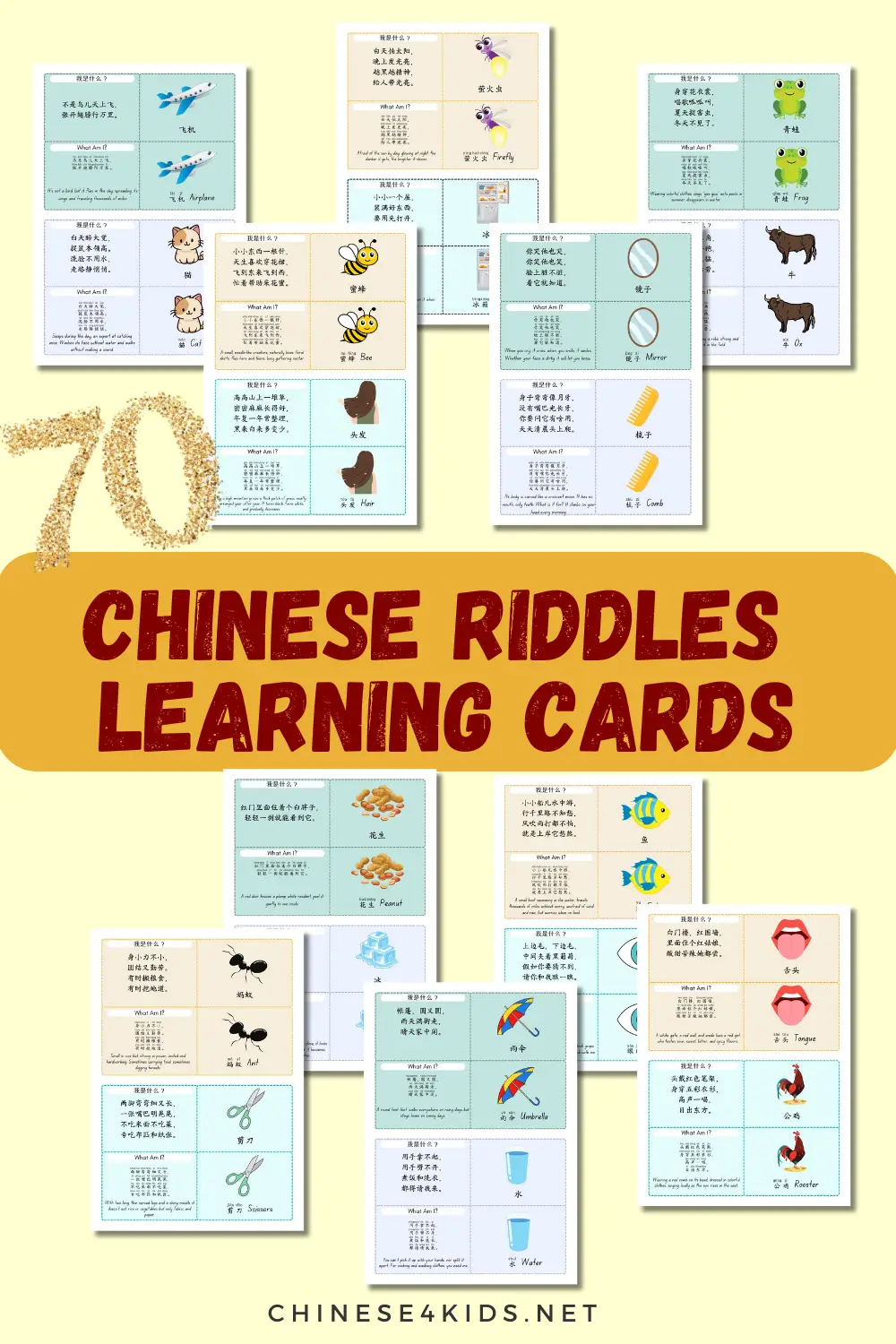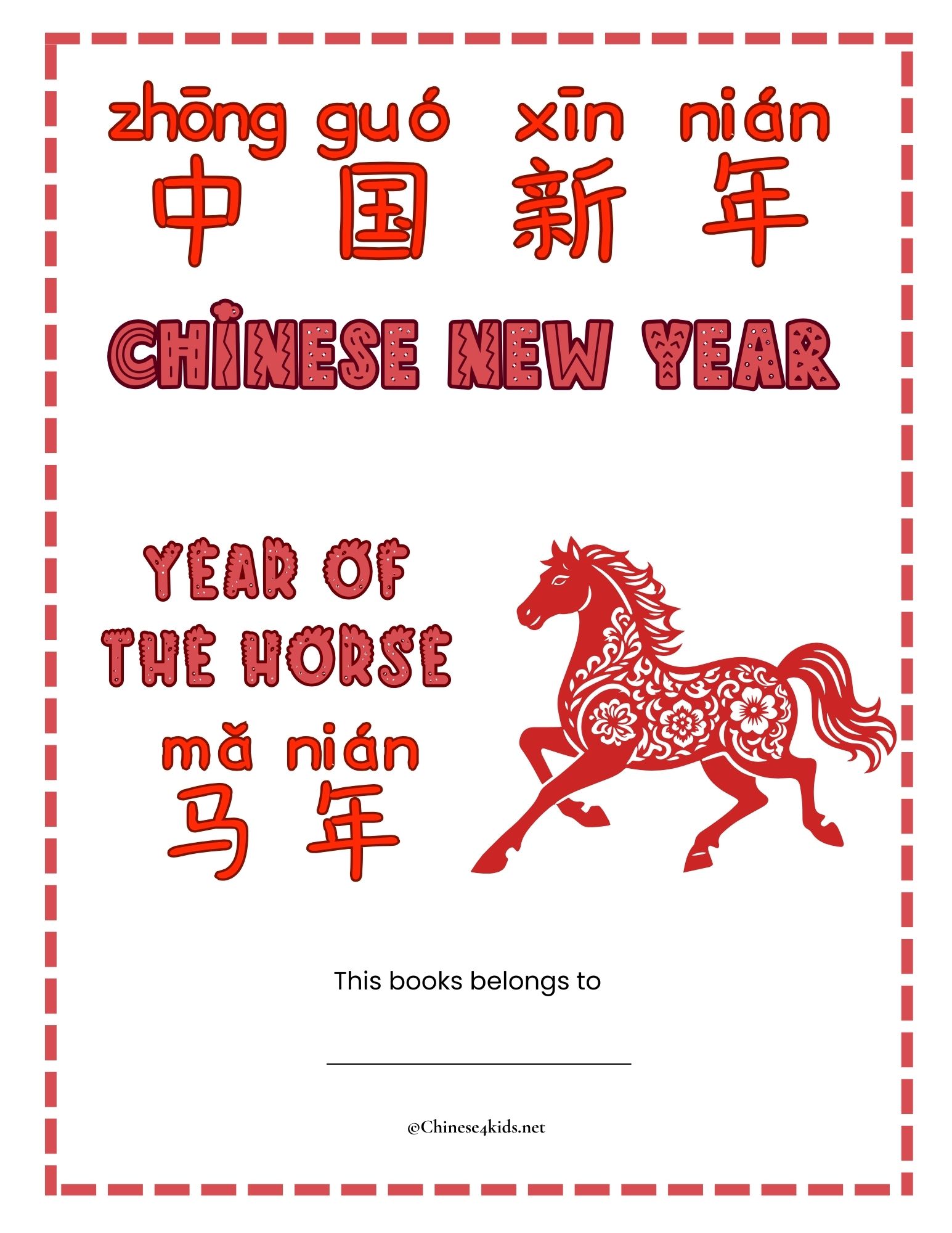
Home » Chinese Quotes | Chinese Sayings » Chinese Idioms on Reading
Chinese Idioms on Reading

Reading is a magical way to explore new worlds and gain knowledge. In Chinese culture, there are many idioms, or 成语 (chéngyǔ), that celebrate the joy and importance of reading.Learning these idioms not only helps understand Chinese better but also makes your speech more colorful and expressive.
What Are the Chinese Idioms (成语)
Chinese idioms, called 成语 (chéngyǔ), are special phrases that make the Chinese language more interesting. Most of these idioms are made up of just four characters, each carrying a deep meaning. But not all idioms follow this rule—some are longer but still carry important lessons or ideas. Learning 成语 helps you understand Chinese culture better and makes your speech more colorful and fun!
Similarity and Difference Between Chinese Idioms and Proverbs
Chinese idioms and proverbs are both short sayings that teach us something important. They both use few words to share wisdom or advice. The difference is that 成语 are usually very short, often just four characters, and sometimes you need to know the story behind them to understand what they mean. Proverbs, on the other hand, are longer and easier to understand right away because they give clear advice or a simple truth. While idioms can be a bit tricky, proverbs are like friendly reminders that everyone can understand.
Now Let’s explore some fantastic Chinese idioms related to reading!
Idioms About Reading
读书破万卷 (dú shū pò wàn juàn)
Read thousands of books until their bindings break.This idiom emphasizes the importance of reading a vast number of books, showing dedication to learning.
Example: “He’s so knowledgeable because he believes in 读书破万卷 (dú shū pò wàn juàn).”
书声琅琅 (shū shēng láng láng)
The melodious sound of reading.
This idiom describes the pleasant sound of people reading aloud, often in a group setting like a classroom.
Example: “The classroom was filled with the 书声琅琅 (shū shēng láng láng) of students reading together.”
知书达礼 (zhī shū dá lǐ)
Well-read and understanding of etiquette.This idiom praises someone who is knowledgeable from reading and also well-mannered.
Example: “She’s not only smart but also polite, truly 知书达礼 (zhī shū dá lǐ).”
Describing Extensive Reading
学富五车 (xué fù wǔ chē)
One’s learning is as rich as five cartloads of books.Explanation: This idiom describes someone who has read a vast amount of books and is very knowledgeable.
Example: “He’s always sharing interesting facts because he’s 学富五车 (xué fù wǔ chē).”
博古通今 (bó gǔ tōng jīn)
Knowledgeable about the past and present.Explanation: This idiom praises someone who knows a lot about history and modern times due to extensive reading.
Example: “With his knowledge of history and current events, he’s 博古通今 (bó gǔ tōng jīn).”
才高八斗 (cái gāo bā dǒu)
Talented enough to fill eight bushels.Explanation: This idiom describes someone with exceptional talent and knowledge, usually from extensive reading.
Example: “Her essays are brilliant; she’s truly 才高八斗 (cái gāo bā dǒu).”
博览群书 (bó lǎn qún shū)
Broadly read many books.Explanation: This idiom refers to someone who reads widely across many subjects.
Example: “He knows a lot about different topics because he’s 博览群书 (bó lǎn qún shū).”
满腹经纶 (mǎn fù jīng lún)
A belly full of strategies.Explanation: This idiom describes someone who is very wise and knowledgeable, often from reading.
Example: “He always has great ideas because he’s 满腹经纶 (mǎn fù jīng lún).”博学多才 (bó xué duō cái)
Broadly learned and talented.Explanation: This idiom praises someone who is knowledgeable and skillful, thanks to extensive reading.
Example: “She can do so many things well because she’s 博学多才 (bó xué duō cái).”
博学多闻 (bó xué duō wén)
Broadly learned and well-informed.
Explanation: This idiom describes someone who is not only knowledgeable but also well-informed on many topics.
Example: “He’s always up-to-date on everything because he’s 博学多闻 (bó xué duō wén).”
on Intensive Reading
精益求精 (jīng yì qiú jīng)
Striving for perfection.This idiom is about always working to improve, especially in studying and reading.
Example: “She always revises her work to make it perfect, showing 精益求精 (jīng yì qiú jīng).”
字斟句酌 (zì zhēn jù zhuó)
Weighing each word and sentence carefully.
This idiom describes someone who reads or writes with great care, focusing on every detail.
Example: “He checks every word before finishing his essay, really 字斟句酌 (zì zhēn jù zhuó).”
Idioms Describing Skimming A Book
一目十行 (yī mù shí háng)
Reading ten lines at a glance.This idiom describes someone who reads quickly, skimming through text.
Example: “She can finish a book in no time because she reads 一目十行 (yī mù shí háng).”
浅尝辄止 (qiǎn cháng zhé zhǐ)
Tasting a little and stopping.This idiom refers to someone who skims the surface of reading without digging deeper.
Example: “He often 浅尝辄止 (qiǎn cháng zhé zhǐ), so he never really understands the material.”
浮光掠影 (fú guāng lüè yǐng)
Like light passing over water.This idiom describes someone who only skims through reading, without understanding much.
Example: “If you only 浮光掠影 (fú guāng lüè yǐng), you won’t learn anything.”
Expressing the Love of Reading
手不释卷 (shǒu bù shì juàn)
Never letting go of a book.
This idiom describes someone who loves reading so much that they never put their book down.
Example: “She’s always reading, really 手不释卷 (shǒu bù shì juàn)!”
学而不厌 (xué ér bù yàn)
Never tire of learning.
This idiom means always being eager to learn and never getting bored with it.
Example: “He’s always looking for new books because he’s 学而不厌 (xué ér bù yàn).”
Idioms Describing Fast Reading
一目十行 (yī mù shí háng)
Reading ten lines at a glance.This idiom describes someone who reads very quickly.
Example: “She finished the entire book in one afternoon because she reads 一目十行 (yī mù shí háng).”
the Richness in Reading
浩如烟海 (hào rú yān hǎi)
Vast like a sea of smoke.This idiom describes a huge amount of reading material or a vast collection of books.
Example: “The library’s collection is 浩如烟海 (hào rú yān hǎi).”
汗牛充栋 (hàn niú chōng dòng)
Enough books to make an ox sweat and fill a house.This idiom refers to a huge number of books, so many that they could fill an entire house.
Example: “His personal library is 汗牛充栋 (hàn niú chōng dòng).”
and the Benefit of Reading
开卷有益 (kāi juàn yǒu yì)
Opening a book is always beneficial.
Explanation: This idiom means that reading is always good for you, no matter what you read.
Example: “If you’re unsure what to read, just remember 开卷有益 (kāi juàn yǒu yì).”
书山有路勤为径 (shū shān yǒu lù qín wéi jìng)
There is a path through the mountain of books; diligence is the key.Hard work is the way to success in learning, especially in reading.
Example: “Don’t worry if it’s tough; 书山有路勤为径 (shū shān yǒu lù qín wéi jìng) – hard work will get you there!”
书中自有黄金屋 (shū zhōng zì yǒu huáng jīn wū)
In books, there are houses of gold.This idiom tells us that knowledge from books can lead to great success.
Example: “If you want to succeed, remember 书中自有黄金屋 (shū zhōng zì yǒu huáng jīn wū) – there’s treasure in those books!”
These idioms are more than just words; they are keys to understanding Chinese culture and the love for reading. By learning and using these idioms, you can express yourself more beautifully in Chinese and embrace the wisdom that reading offers. Keep exploring the wonderful world of books, and let these idioms inspire your journey of learning!
Side Note:
If you are looking for reading materials for your kids, consider the levelled reading books in our store that you can use to help your kids establish a Chinese reading routine, and develop their Chinese literacy.
If you like this article, share it
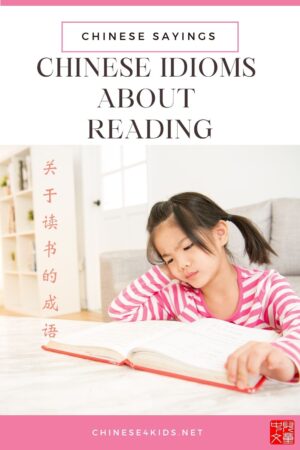
You May Also Be Interested:
- Chinese4kids Membership – a portal for busy Chinese teachers and parents
- Chinese learning flashcards Hive – a flashcards library that with regular additions of new quality Chinese learning flashcards
- Chinese learning worksheets collection – Also a part of Chinese4kids membership, this collection is for teachers and parents who want to have access to engaging worksheets and activity sheets created for kids learning Mandarin Chinese as an additional language
- Speak Chinese with Kids Course
- Chinese Vocabulary Made Easy Course
Recent Posts
Join Our Membership
Enroll to A Course
Buy An eBOOK
Our Posts
